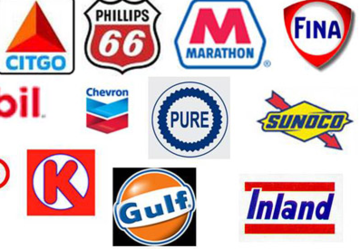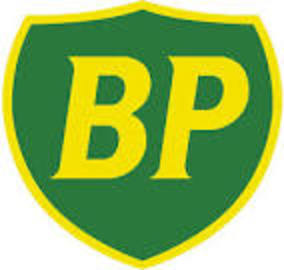Standard Oil Company
Brand
Standard Oil Co. Inc. was an oil producing, transporting, refining, and marketing company. Established in 1870 by John D. Rockefeller as a corporation in Ohio, it was the largest oil refiner in the world of its time. Its controversial history as one of the world's first and largest multinational corporations ended in 1911, when the United States Supreme Court ruled that Standard was an illegal monopoly.
Standard Oil dominated the oil products market initially through horizontal integration in the refining sector, then, in later years vertical integration; the company was an innovator in the development of the business trust. The Standard Oil trust streamlined production and logistics, lowered costs, and undercut competitors. "Trust-busting" critics accused Standard Oil of using aggressive pricing to destroy competitors and form a monopoly that threatened consumers.
Subject ID: 13561
MoreStandard Oil Co. Inc. was an oil producing, transporting, refining, and marketing company. Established in 1870 by John D. Rockefeller as a corporation in Ohio, it was the largest oil refiner in the world of its time. Its controversial history as one of the world's first and largest multinational corporations ended in 1911, when the United States Supreme Court ruled that Standard was an illegal monopoly.
Standard Oil dominated the oil products market initially through horizontal integration in the refining sector, then, in later years vertical integration; the company was an innovator in the development of the business trust. The Standard Oil trust streamlined production and logistics, lowered costs, and undercut competitors. "Trust-busting" critics accused Standard Oil of using aggressive pricing to destroy competitors and form a monopoly that threatened consumers.
John D. Rockefeller was a founder, chairman and major shareholder. With the dissolution of the Standard Oil trust into 33 smaller companies, Rockefeller became the richest man in the world. Other notable Standard Oil principals include Henry Flagler, developer of the Florida East Coast Railway and resort cities, and Henry H. Rogers, who built the Virginian Railway.
By 1911, with public outcry at a climax, the Supreme Court of the United States ruled, in Standard Oil Co. of New Jersey v. United States, that the Standard Oil Trust must be dissolved under the Sherman Antitrust Act and split into 34 companies. Two of these companies were Jersey Standard ("Standard Oil Co. of New Jersey"), which eventually became Exxon, and Socony ("Standard Oil Co. of New York"), which eventually became Mobil.
Over the next few decades, both companies grew significantly. Jersey Standard, led by Walter C. Teagle, became the largest oil producer in the world. It acquired a 50 percent share in Humble Oil & Refining Co. an oil producer. Socony purchased a 45 percent interest in Magnolia Petroleum Co., a major refiner, marketer and pipeline transporter. In 1931, Socony merged with Vacuum Oil Co., an industry pioneer dating back to 1866, and a growing Standard Oil spin-off in its own right.
In the Asia-Pacific region, Jersey Standard had oil production and refineries in Indonesia but no marketing network. Socony-Vacuum had Asian marketing outlets supplied remotely from California. In 1933, Jersey Standard and Socony-Vacuum merged their interests in the region into a 50–50 joint venture. Standard-Vacuum Oil Co., or "Stanvac", operated in 50 countries, from East Africa to New Zealand, before it was dissolved in 1962.
The original Standard Oil Company corporate entity continues in existence and was the operating entity for Sohio; it is now a subsidiary of BP. Other Standard oil entities include "Standard Oil of Indiana" which became Amoco after other mergers and a name change in the 1980s, and "Standard Oil of California" which became the Chevron Corp.
Subject ID: 13561
Subject ID: 13561

